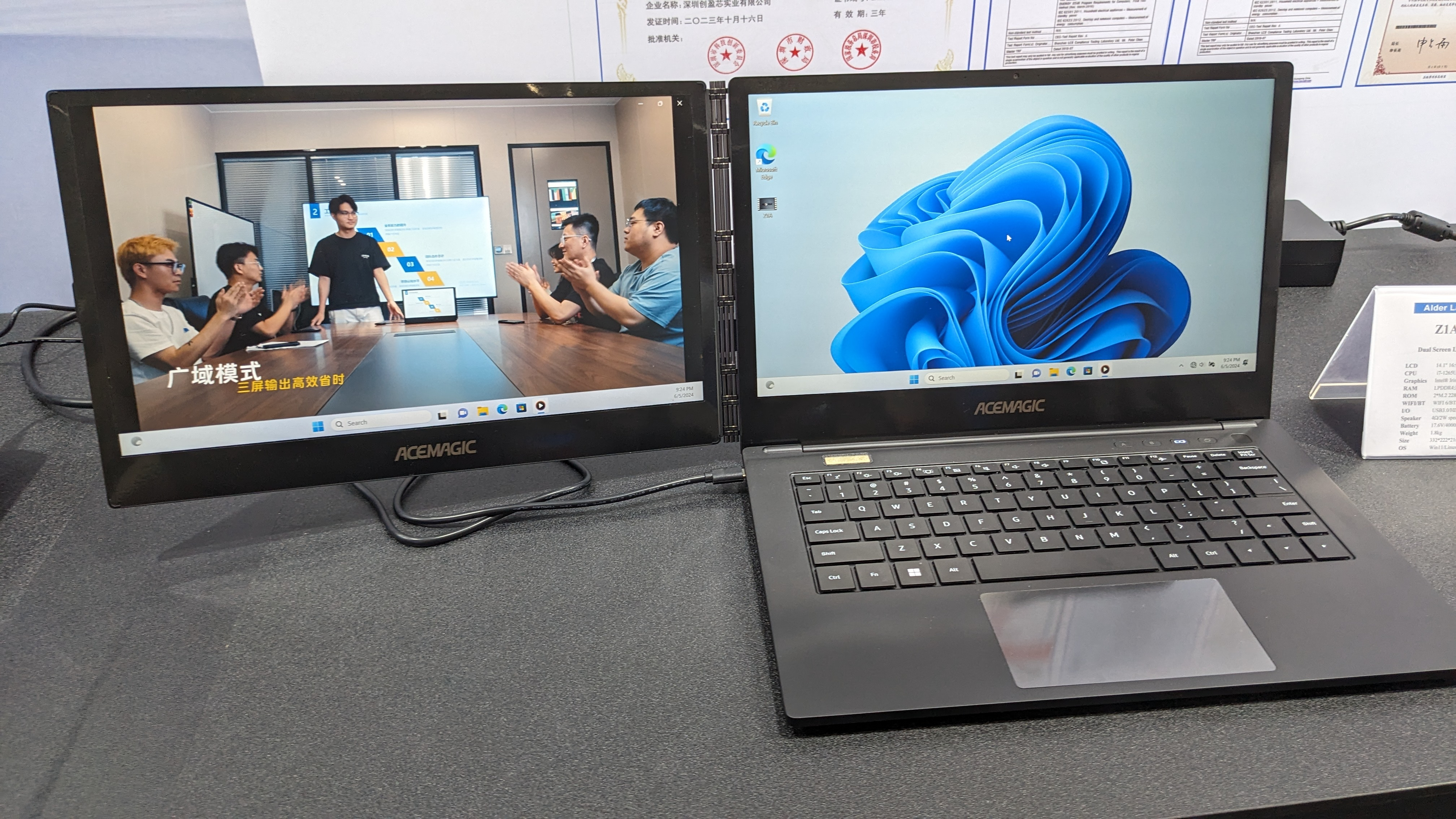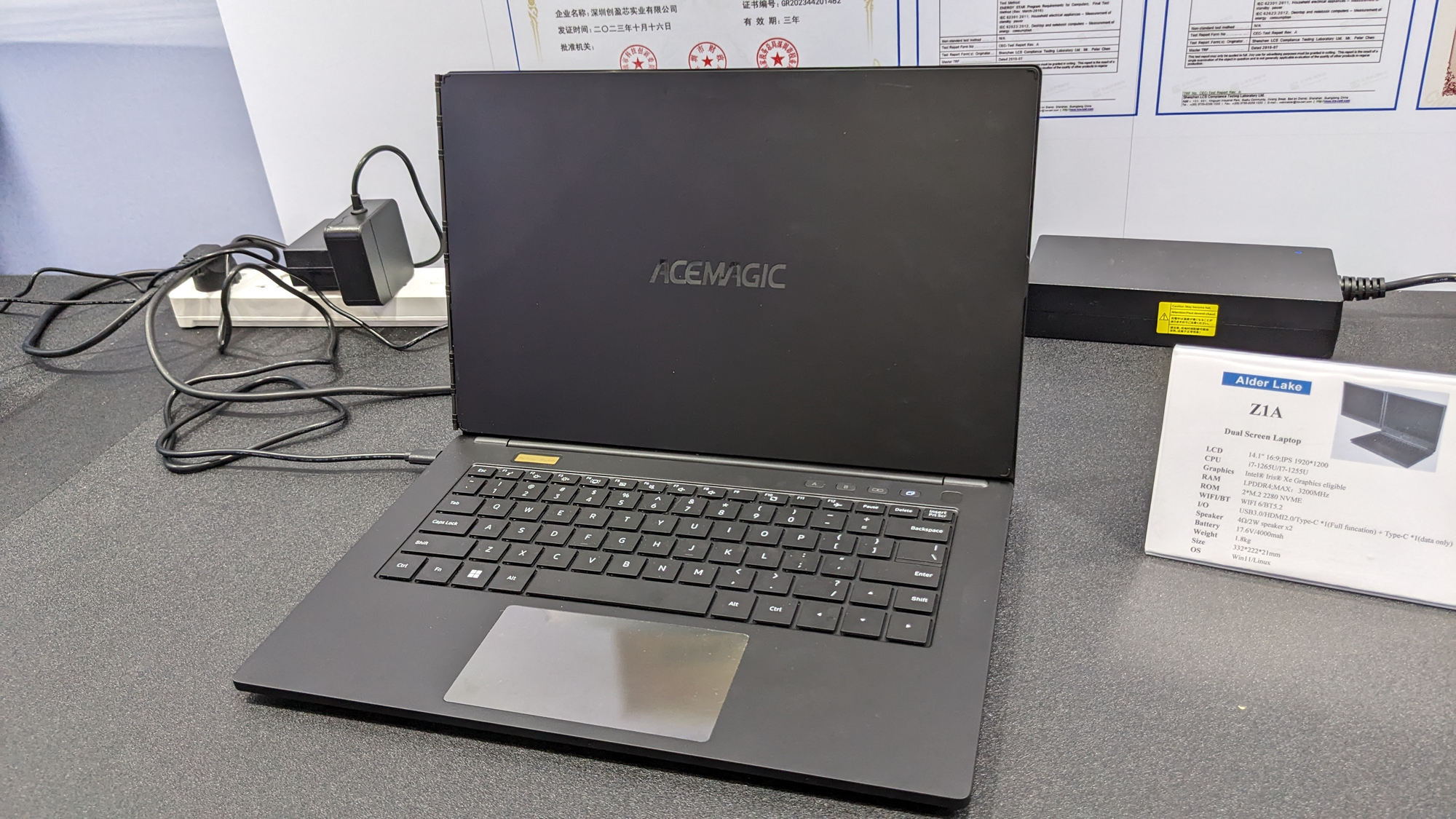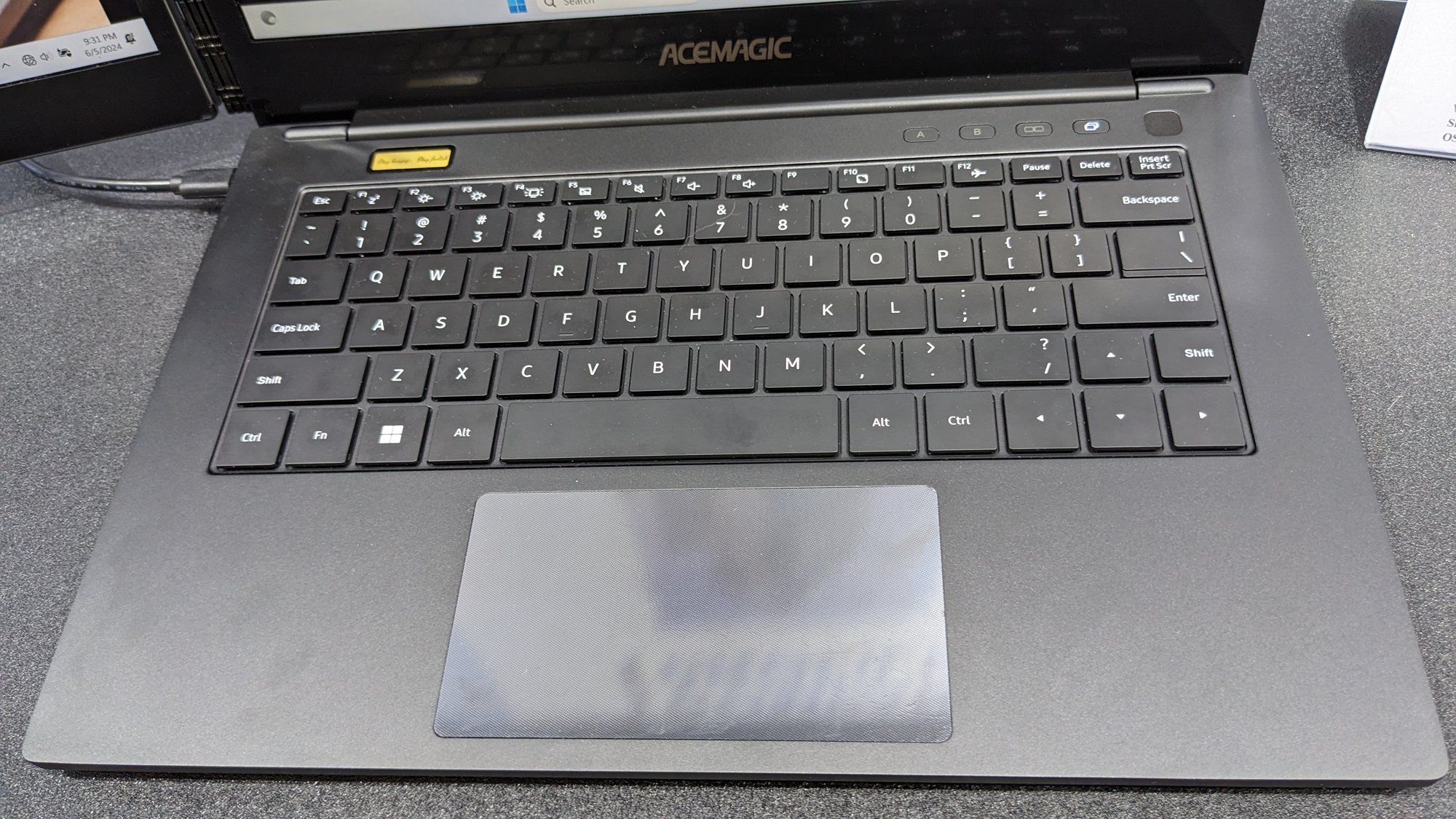
The dream of a true, dual-screen productivity laptop may finally have been achieved by one of the least likely players. Acemagic, a relatively small Chinese company known for making mini PCs, is rolling out the X1 (originally listed as the Z1A), an Intel-powered Windows laptop with dual 14-inch, 1080p displays. I got a chance to visit Acemagic's Computex 2024 booth to go hands-on with the X1, and it seems like the real deal.
Update (June 11th): Acemagic informed us that the final name of the laptop will be the Acemagic X1, not Z1A which a representative described as the "production name." We have updated this article and its headline to change the name.
Unlike any other dual-screen laptop I've seen in my career, its second screen is equal to the first, flipping to the left to be the same height as the primary display. Also, unlike other dual-screen laptops, it has a built-in physical keyboard. You will not have to resort, as on the Yoga Book 9i, to either using the second screen as a virtual keyboard or plopping a Bluetooth keyboard on top of it.
The X1 has a sturdy metal hinge—rated for 300,000 uses—that holds "screen B" in place. When you open the laptop, screen B is folded on top of screen A, but with its backside facing you. So, you need to fold the secondary screen out in order to see the primary one.

While you're using the laptop, you can either keep screen B on the left side of the lid, or you can rotate it back 180 degrees so it locks against the back of screen A. Bending the hinge felt natural and, when bent 180 degrees, screen B seemed completely locked into place (by a magnet, we think). With screen B behind screen A, you can either show the person sitting across from you a presentation or turn off screen B and use the X1 as a single-screen laptop.
Turning the screens on and off is a breeze, thanks to physical buttons that live above the function row. One button toggles screen B on or off, another toggles screen A on or off, a third button makes screen B an extended desktop, and the fourth button makes both monitors show the same thing.
The Acemagic X1's dual-monitor experience is genuinely superior to what's come before. Asus has used small second screens on its touchpad or above its keyboard on the deck, but these are best used for palettes or control panels. Lenovo has done a lot of second-screen experimentation, doing everything from having a 7-inch display pop out of a slot in the lid on the 17-inch ThinkPad W series to putting an 8-inch screen where the numpad might be on a ThinkBook to releasing the Yoga 9i, which is two screens without a built-in keyboard. Acer also produced an Iconia laptop with two touch screens many years ago.
When compared to other laptops, Acemagic's offering is truly innovative. But it's not without compromise. An Acemagic rep said that, with both screens on, you should expect just four hours of battery life.
Also, this isn't the most performant or best-looking 14-inch laptop around. Acemagic said that when the product ships this summer, it will have one of Intel's 13th-generation Core CPUs inside. However, the prototype on display at Acemagic's booth had just a 12th-generation Core CPU inside; that's two generations behind Intel's "Meteor Lake" CPUs and three generations behind the "Lunar Lake" CPUs that are coming to laptops in just a few months.
The screens are decent, but they aren't particularly bright or colorful. The keyboard feels pretty snappy but it's not likely to make anyone forget about their ThinkPad's typing experience. The touchpad seemed ok but wasn't particularly large. Also, the entire laptop looks really unexciting in its drab, gray colorway.

At 3.96 pounds (1.8 kg), the Acemagic X1 is pretty heavy compared to most 14-inch productivity laptops, but the weight from that second display has to hold it back. It is also not particularly slim or compact at 12.6 x 8.7 x 0.82 inches (322 x 222 x 21 mm).
Also, the X1 comes from Acemagic, a small brand that is not known for laptops. Whether you'll get great support or your laptop will still be in great shape a year after you buy it is more of a question than if you purchase from a major brand such as HP, Dell or Lenovo.
Acemagic also made headlines back in February when its Acemagic AD08 mini PC was found to come with malware preloaded. The company said it was an error and worked to fix the problem on future units.
So, there are definitely some major trade-offs here, but also great innovation in design. The X1 will go on sale sometime this summer for an undisclosed price, first appearing on Acemagic's website. If the trade-offs don't appeal to you, you can always get one of the best portable monitors, but it won't be built-in.







